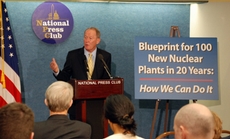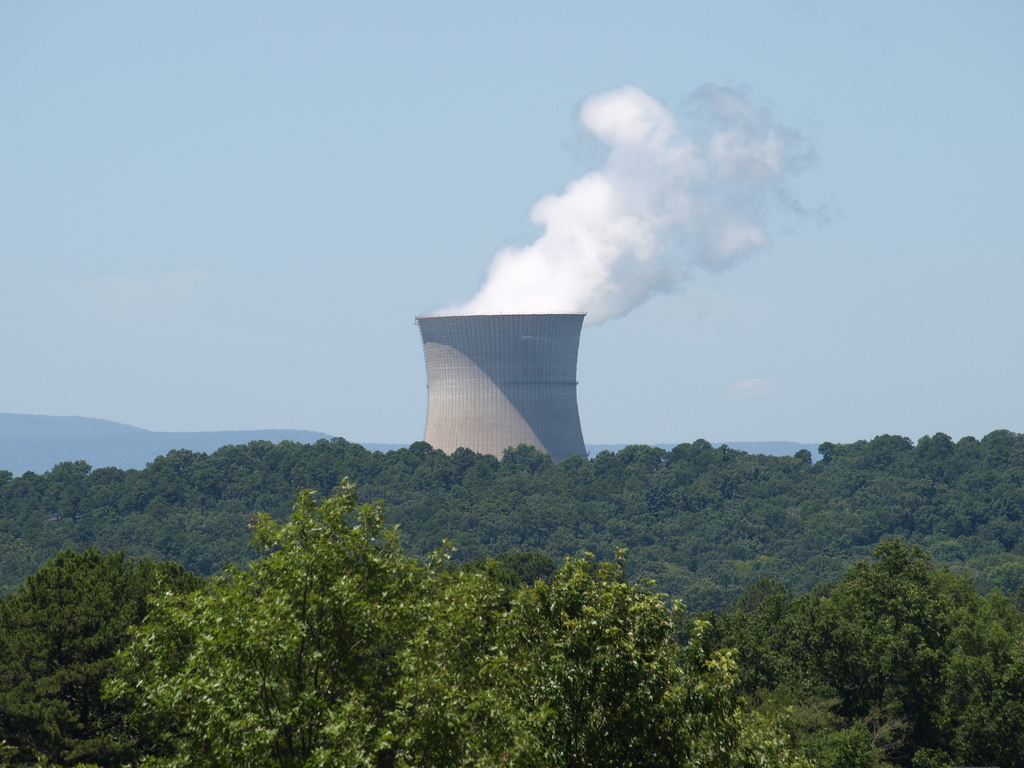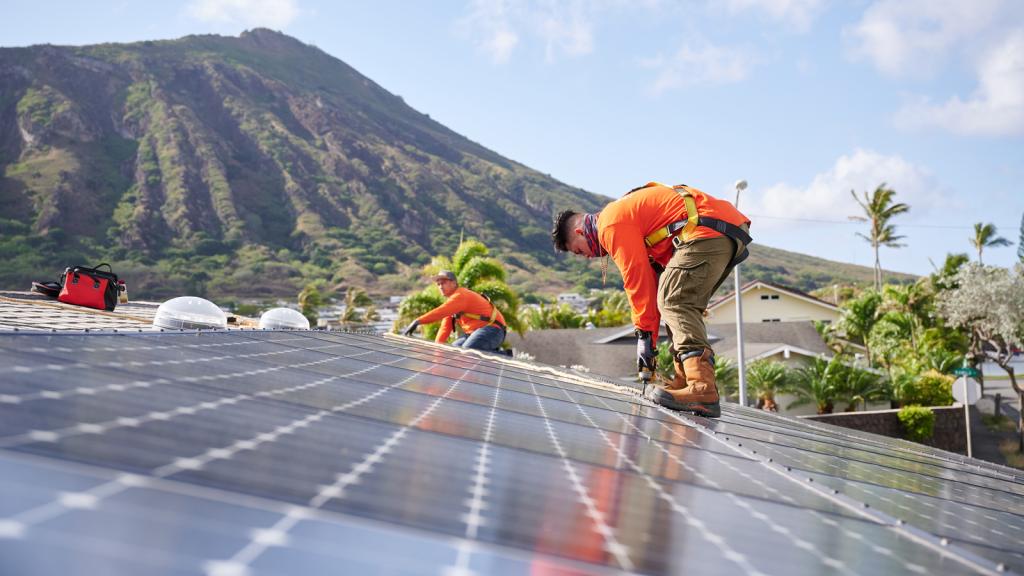 Lamar Alexander unveils his plan.Sen. Lamar Alexander (R-Tenn.) on Monday called for 100 new nuclear power plants over the next 20 years as the central element of a climate and energy plan that Republicans intend to introduce in the Senate. In presenting the plan, he shot down the possibility that he would work with Democrats to craft compromise climate and energy legislation.
Lamar Alexander unveils his plan.Sen. Lamar Alexander (R-Tenn.) on Monday called for 100 new nuclear power plants over the next 20 years as the central element of a climate and energy plan that Republicans intend to introduce in the Senate. In presenting the plan, he shot down the possibility that he would work with Democrats to craft compromise climate and energy legislation.
Just a few days ago, Alexander seemed willing to work with Dems on a bill if it included major support for nuclear power. But at a press conference on Monday, he argued that the approach used in the recently passed House climate bill “needs to be junked,” and said he wouldn’t support passage of a similar plan in the Senate even if it included incentives for more nuclear power. “It’s unfixable,” said Alexander.
Instead, Alexander, who chairs the Senate Republican Conference, is promoting a separate “four-step low-cost clean energy plan,” which he says other GOP senators are backing. Nuclear power is the central component, but the blueprint also calls for development of electric vehicles, expanded offshore exploration for oil and natural gas, and increased funding for the research and development of renewable energy.
“We Americans invented [nuclear] technology,” said Alexander. “Isn’t it about time we got back into the game?”
A vastly expanded nuclear industry would “create jobs, lower utility bills, and put the United States within the goals of the Kyoto Protocol on global warming by 2030 without the expensive cap-and-trade and renewable mandates passed by the House of Representatives two weeks ago,” said Alexander. He called the House bill “a job-killing, $100-billion-a-year national energy tax” that “will raise utility bills and send jobs overseas looking for cheap energy.”
Since when was nuclear cheap?
In reality, the Congressional Budget Office and the Environmental Protection Agency estimate that the House climate bill would cost households less than 50 cents per day.
Nuclear power plants, on the other hand, are extremely expensive — and Alexander doesn’t seem to mind sticking average Americans with the bill. A press release on Alexander’s website notes that “the Republican energy plan should not add to the federal budget since ratepayers will pay for building the plants.”
That cost could be exorbitant. A study released last month [PDF] by economist Mark Cooper, senior fellow at the Institute for Energy and the Environment at Vermont Law School, found that building and operating 100 new nuclear reactors would cost $1.9 trillion to $4.1 trillion more over the life of the reactors than would generating the same electricity from renewables and energy efficiency. And taxpayers would have to foot the bill for loan guarantees for the nuclear industry, as the private sector has been unwilling to make big investments in the sector.
There are currently 104 nuclear plants up and running in the U.S., but no new reactors have been built in the country since 1996. On June 30, nuclear giant Exelon announced that it is delaying plans for two reactors in Texas indefinitely, citing economic concerns.
Nuclear power faces other hurdles as well. It takes about a decade to bring new nuclear plants online, so they can’t help with short-term energy shortages. Also, concerns about safe storage and disposal of nuclear waste have yet to be adequately addressed.
Another big worry is that nuclear reactors consume large amounts of water for cooling — up to 830 gallons of freshwater per megawatt-hour of power produced. Most of that water is returned to the source, but at a higher temperature. If the water is too warm to start with — as it was in France during the mega–heat wave of 2003 — then it’s of no use for cooling reactors and they could have to be temporarily shut down. And as climate change triggers more droughts, there may also be a shortage of water available for cooling reactors.
The nuclear option?
Though Alexander has said that he won’t play ball with Dems even if they add support for nuclear power to a climate and energy bill, other Republicans still might. At a hearing last week in the Senate Environment and Public Works Committee, Mike Crapo (R-Idaho) joined Alexander in calling for nuclear to play a big role in a climate and energy package.
Nuclear could also be a deal-maker or deal-breaker for John McCain (R-Ariz.), who cosponsored the earliest climate bills in the Senate. Last year, he said the Lieberman-Warner climate bill should include more support for nuclear power (he didn’t end up voting on the bill because he was on the road campaigning for president). Alexander’s new plan goes further than McCain’s campaign proposal for nuclear, which called for 45 new reactors by 2030, scaling up to 100 by an unspecified later date.
If Alexander’s announcement Monday is any indication, though, hopes are fading that nuclear provisions might attract GOP support for a bipartisan climate and energy bill.



